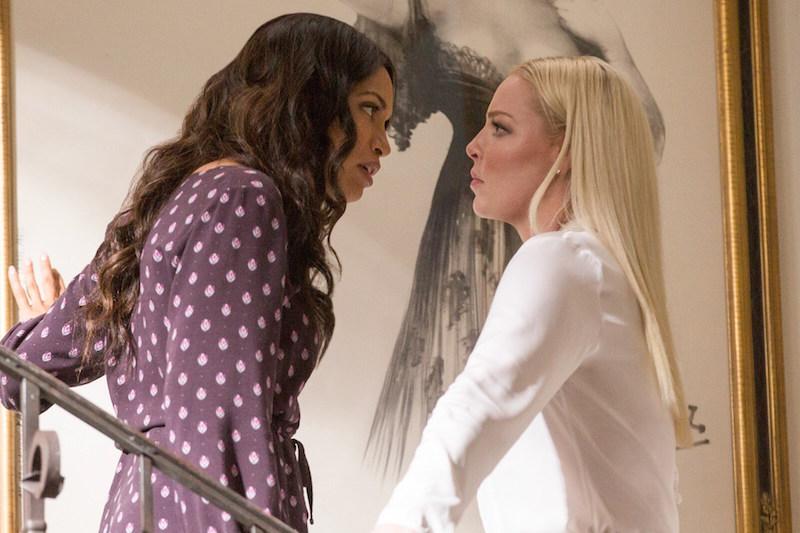Within seconds – literally seconds – of Unforgettable it becomes apparent that this is the kind of film that in the late Eighties and Nineties used to be referred to as “straight to video”, a label that covered a plethora of trashy, sexist, by-the-numbers psycho and erotic thrillers that beat a hasty route to Blockbuster. To actually see one in the cinema, released by a major studio, is a disconcerting experience.
Those first few salacious and silly seconds involve the police interrogation of a woman, who looks like the victim of an almighty beating but is actually facing a murder rap. Julia Banks (Rosario Dawson) is shown Facebook images of her scantily clad self and a pair of her bright red knickers, both dubiously incriminating her in the crime. Even at this early stage, it’s the dialogue that’s criminal.
Six months earlier (we’ll also be treated to a "six months later") Julia is excitedly leaving San Francisco for a new life and new fella David (Geoff Stults) in Southern California. She’s only vaguely outlined as a writer/editor for a website; he is a former Wall Streeter now running a real ale business back home. She’s bursting with personality; he’s a stiff with the kind of five o’clock shadow that seems to have been painted on, a young daughter and an ex-wife, Tessa (Katherine Heigl), who won’t let go (pictured below).
 The film’s second tell-tale scene is its introduction of Tessa, as she applies the finishing touches to her make-up, daubs her daughter with scent and declares that, “Now you’re perfect. Just like Mommy.” She’ll later bully the poor girl mercilessly, in much the same way as she was tormented and obviously twisted by her own mother (former Charlie’s Angel Cheryl Ladd). Heigl plays her like a Stepford Wife gone rogue, with Barbie blonde locks and a stiff back, creepy and clearly not to be trusted.
The film’s second tell-tale scene is its introduction of Tessa, as she applies the finishing touches to her make-up, daubs her daughter with scent and declares that, “Now you’re perfect. Just like Mommy.” She’ll later bully the poor girl mercilessly, in much the same way as she was tormented and obviously twisted by her own mother (former Charlie’s Angel Cheryl Ladd). Heigl plays her like a Stepford Wife gone rogue, with Barbie blonde locks and a stiff back, creepy and clearly not to be trusted.
And so, having recently survived one abusive relationship, which understandably haunts her, poor Julia now finds herself in another, albeit one in which the danger comes not from a man, but his ex.
There are echoes of Fatal Attraction – the granddaddy of this dodgy genre – in the notion that a woman scorned will necessarily turn into an evil nemesis. There is even a hamster, the sight of which conjures thoughts of another bubbling pot on the stove. And there is one woefully signposted cliché after another – the pause at the top of a stair, the fireplace poker, the knife that could easily have been discarded but isn’t.
Surprisingly, this is written, produced and directed by women. It seems likely that they feel there's a message about the societal pressures on women to be perfect, and on the way that battered women (like rape victims) can regrettably blame themselves or be made to feel responsible for their abuse. But the mode of storytelling and execution make such aspirations redundant.













Add comment